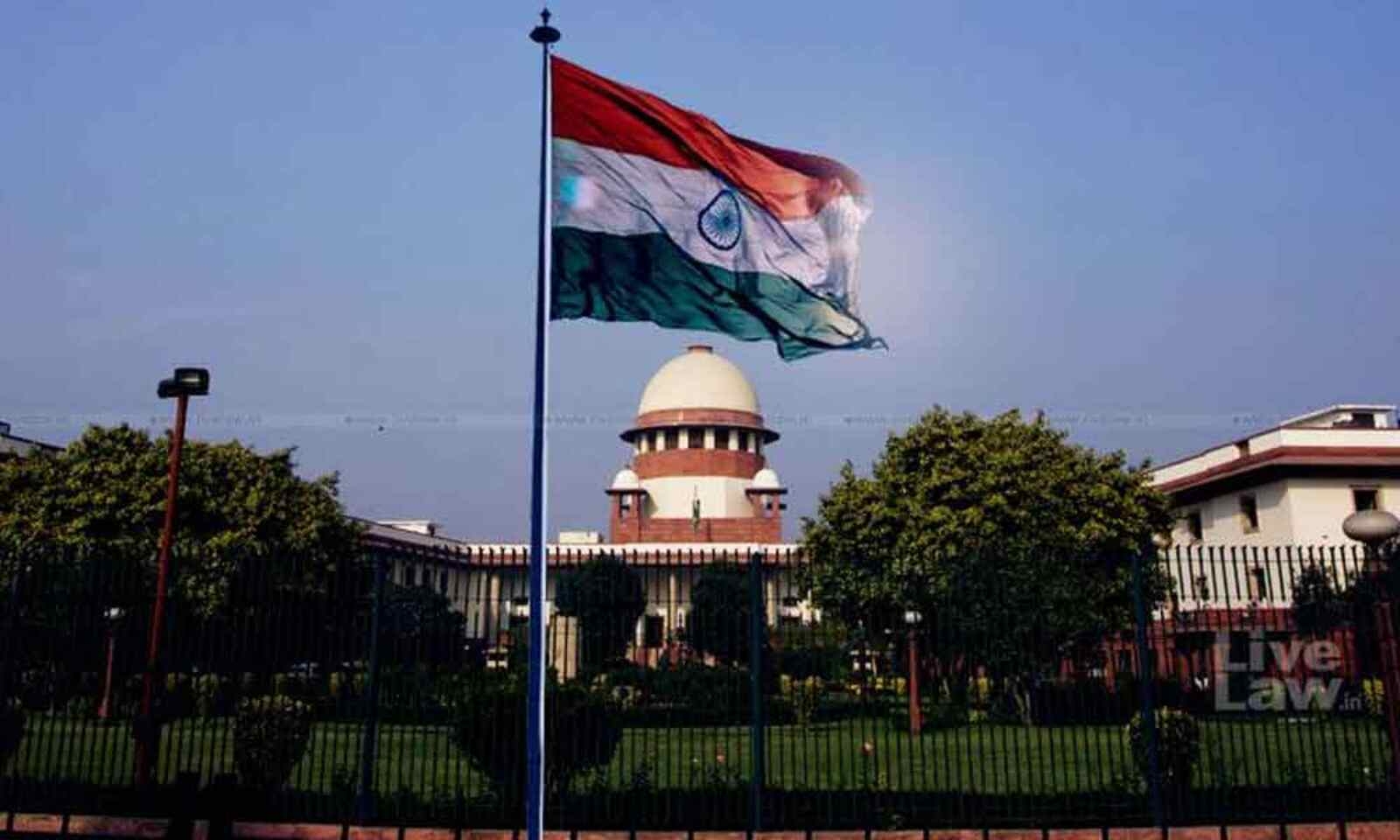Higher Judiciary: Time to Redeem the Lost Standing
India can never thrive as a vibrant democracy if the higher judiciary is seen to be failing the country. Therefore, it is time that the judiciary undertakes some radical measures to redeem its standing.

The higher judiciary in India is in the news these days for all the wrong reasons and there are many of them:–
- Arrogating to itself the right to appoint judges through a judicial coup after supersession of the act passed by the Parliament, the supreme legislative body;
- Adjudicating the case of NJAC in its own favour, despite the well-established principle of natural justice “Nemo iudex in causa sua”, i.e. no person shall be a judge in his own cause;
- Total opaqueness in the proceedings of the collegium and stubborn resistance to making them public;
- Undue time wasted on appointment related issues, thereby adversely affecting the time available for judicial duties;
- Time wasted on infructuous PILs, resulting in undue interference in governance related policies and issues.
- Penchant for unnecessary oral remarks;
- Frequent adjournments (especially if sought by influential advocates);
- Admission of bail applications;
- Excessive holidays.
Indisputably, the performance of the higher judiciary has been disappointing. As per the statement of the Law Minister in the Rajya Sabha, a total of 71,411 cases were pending in the Supreme Court as on 02 August 2022. Out of these cases, more than 10,491 are awaiting disposal for over a decade. In addition, 59 lakh cases are pending in the High Courts and over 4.1 crore cases are pending in the subordinate courts in the country. Can the judiciary be proud of this state of affairs?
Large amount of money is locked up in long pending tax-related litigations – 95,000 tax related cases involving more than Rs 3 lakh crores are pending before the High Courts for the last 3 years. Delay in judicial proceedings affects the image of the country, adversely impacting its position in the ‘Ease of Doing Business’ ranking.
Regaining Trust of the People
India can never thrive as a vibrant democracy if the higher judiciary is seen to be failing the country. Therefore, it is time that the judiciary undertakes some radical measures to redeem its standing. At the outset, the judiciary must appreciate that respect and trust cannot be extracted through coercion or the threat of contempt of court, it has to be earned through sincere efforts. Here are a few suggestions:-
Need to Change with the Times
- The Dress Matters
India’s higher judiciary continues to follow the dress code prescribed by the British – white shirts and trousers with a white neck band and a black coat. Dress exerts profound psychological and behavioural influence on the wearers. Researchers call the process as ‘enclothed cognition’. Studies carried out at the Kellogg School of Management at Northwestern University showed that clothes invade the body and brain, putting the wearer into a different psychological state. Without being aware of it, people attempt to relieve the psychological conflict called ‘cognitive dissonance’, by modifying their behaviour to match their dress.
Black coats expect the judges to behave like demi-gods, considering themselves above all others, giving rise to a sense of invincible superiority and associated arrogance. Resultantly, the judges tend to behave in a supercilious manner. Such a characteristic dress also intimidates the litigants and makes them view the courts with awe, further fuelling the sense of superiority in the judges. They cease being normal human beings and acquire a halo.
Why cannot a judge be dressed in a less menacing dress? They should wear a familiar formal Indian attire. Court decorum and gravitas will not be adversely affected by shedding black coats.
- Salutations
A bench of justices H L Dattu and S A Bobde heard a PIL filed by advocate Shiv Sagar Tiwari, with a plea for banning the use of terms like ‘my lord’, ‘your lordship’ or ‘your honour’ in the courts. He contended that such terms were a relic of the colonial era and a sign of slavery. He reminded the bench of the Bar Council of India's rule of April 2006 that discouraged the use of the terms 'My Lord' or 'Your Lordship'.
Unfortunately, a major undesirable side-effect of such salutations is that the judges tend to get a false sense of superiority, resulting in egotistical behaviour. Sadly, advocates are equally guilty in perpetuating this colonial era practice. Many feel that their cause would be better served if they display an overly servile demeanour. Hence, this iniquitous practice can be banished only through specific orders of the Supreme Court prohibiting the use of colonial terms.
- Language
Article 348(1) of the Constitution of India provides that all proceedings in the Supreme Court and in every High Court shall be in English language, until Parliament by law otherwise provides. As a first step, in a welcome move, Chief Justice Chandrachud has promised to make the judgments delivered by the Supreme Court available in four languages — Hindi, Tamil, Gujarati and Odia.
Language used in the courts should be simple and easily understood by all. Preferably, the entire process should be in the State language for easy comprehension, so that the petitioners get the confidence that they would get a fair hearing and treatment. Article 348 (2) of the Constitution provides for the usage of official language of the State in the courts within its territory. Judiciary must also consider digitization in the official language of the State for the benefit of litigants.
Expediting Dispensation of Justice
- Enormous possibilities of Information Technology should be exploited to make procedures more transparent and less cumbersome. Use must be made of innovative tools such as Lok Adalats, Gram Nyayalays and Fast Track Courts for speedy justice disbursal.
- Both the central and the state governments are major litigants and are responsible for the burden on the courts. Currently, a plethora of cases are being filed by the officials against the relief provided to the aggrieved individuals and the amount involved is miniscule. The Supreme Court should rule that no case in which a government is the appellant, shall be entertained beyond the High Courts, unless it entails a major policy issue or interpretation of law.
- Before admitting a PIL, the advocates should be asked to reveal details of the litigants and the funding sources. The courts must know as to which party is financing a PIL so that the motive becomes apparent. Courts should not allow themselves to be misused to settle political scores. In addition, the petitioner should be asked to deposit a reasonable sum (say Rs ten lacs). This amount should get forfeited in case the appeal gets rejected. It will deter those who make a living out of PILs with subjective agenda.
- A robust regulatory architecture should be put in place with transparent and well-delineated procedures to inspire confidence amongst the litigants. No advocate, howsoever influential, should be able to jump the queue or have his case heard by a judge of his choice.
- Fast track disposal of election petitions should be ensured. Such cases cannot be allowed to linger on indefinitely or till the new elections become due. That is sheer mockery.
- The Supreme Court should not entertain routine cases directly. A number of well-known advocates have a tendency to bypass the High Courts.
Reducing Cost of Litigation
- Unreasonable cost of fighting cases in India has resulted in the ruination of many litigants. Frequent adjournments (proverbial ‘date after date’ curse), decades taken for the cases to be decided and exorbitant advocate fees deter many from knocking at the doors of the courts. They prefer to suffer injustice rather than waste time and resources chasing the chimera of speedy trials. Bar Council of India (BCI) can help the litigants by asking all advocates to charge fees in a lump-sum for fighting a case before a designated court and not on ‘per date’ basis. If that becomes the norm, advocates will have no interest in prolonging the cases by demanding frequent adjournments on specious grounds.
- They would want to conclude cases expeditiously to be free to undertake additional assignments.
- There should be a cap on the cases that an advocate can undertake at any given time. Many successful advocates are so burdened with cases that they cannot be present on all dates and their subordinates seek adjournments. That is a common cause of delay in the dispensation of justice. Such a cap will encourage the advocates to conclude cases expeditiously, to be free to undertake additional assignments. In addition, underemployed advocates would also get some work.
- BCI should also rule that no advocate should charge his client any fees in case the opposite lawyer fails to appear in the court for any reason whatsoever. It will prevent collusion of the opposing lawyers to swindle their clients by seeking frequent adjournments by turns.
- Judges should list only that many cases for a day that they can realistically handle. For, every non-hearing date results in wasteful financial burden on the litigants as their advocates have to be paid their attendance fees.
Conclusion
Judges of the Supreme Court and the High Courts should be the role models for the society. They should not be seen as a coterie of self-seeking persons who excel in furthering the interests of their kith and kin. They must be beyond reproach.
A robust judicial architecture gives confidence to the citizens. Time bound disposal of cases instils respect for the courts. According to Kautilya, “Judges shall discharge their duties objectively and impartially so that they may earn the trust and affection of the people”. This trust is crucial for the well-being of a civilised society.
We, the people of India, have a right to expect justice in a fair, inexpensive and timely manner. Higher judiciary is morally duty-bound to ensure that citizens do not lose faith in the judicial system. The onus to redeem the honour of the judiciary lies squarely on the shoulders of ‘My Honours’.


